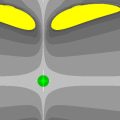Data truncation is a phenomenon that occurs when data or a data stream is stored in a location that is too small to contain its full length. It is similar to, but distinct from, the concept of statistical censorship. In the case of truncated sampling, no note is recorded about the omitted values. This can lead to potential censored data that was not created intentionally.
Examples of this include exam scores and university admissions tests, where a student cannot get a grade higher than 100%. The expression evaluator can detect explicit conversions that can cause truncation and will issue a warning when the expression is parsed. For example, if a 30-character string is converted to a 20-character string, the evaluator will alert you. Modeling median income values would involve truncating income above and below specific amounts, and numeric truncation errors may occur if the integer values are higher than the maximum value allowed for the primitive type short. In statistics, truncation results in values that are limited above or below, resulting in a truncated sample.
This means that it is not possible to use truncated data to make inferences about subpopulations. To display the SQL truncation error message, developers and database administrators can use the trace flag. Generally, insurance adjusters receive values that are truncated to the left, censored to the right, or both. Software is available for maximum probability estimation of even moderately complicated models such as regression models for truncated data. If the truncated fraction is too small, then the effect of truncation can be ignored when analyzing the data.
However, it is important to be aware of this phenomenon so that it can be quickly fixed when it does occur.











